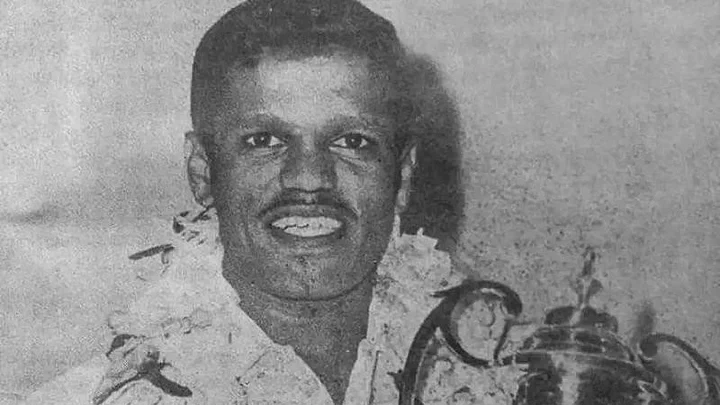The All India Football Federation (AIFF) mourned the demise of the legendary former India footballer Tulsidas Balaram, who passed away in Kolkata on Thursday, 16 February.
A prominent member of the golden generation of Indian football in the 1950 and 1960s, Balaram, who lived in Uttarpara, West Bengal, died in a city hospital in Kolkata. He was 85.
As a mark of respect for Balaram, who played a huge role behind India's historic gold medal triumph in the 1962 Asian Games and several other memorable victories at the international level, the AIFF has announced a three-day mourning period.
While the federation will fly its flag at half-mast during this period, a one-minute silence will be observed before the start of all competitive matches in India.
AIFF president Kalyan Chaubey said in his condolence message, "He was a blessed child of the football god. I am sure Balaram-da has returned to him, leaving us mourning for one of the most gifted players in Indian Football history. He truly was from a golden generation of Indian Football. He was one of the best we had ever seen. My thoughts go out to his family."
Secretary General Shaji Prabhakaran said, "The entire Indian Football fraternity is shattered and heart broken by the passing away of Tulsidas Balaram. My condolences go to his family. May his soul rest in peace."
In Tulsidas Balaram, Indian football has now lost one of the few remaining members of the 1962 Asian Games Indian team, who took the continent by storm by defeating South Korea 2-1 in the final played at Jakarta. Balaram was a member of the famous trio in the Indian forward line, the other two being PK Banerjee and Chuni Goswami. Balaram played 36 matches for the nation, scoring 10 goals in the process, before his career came to an abrupt end because of illness. However, his overall impact on Indian Football as an international player cannot be judged by mere statistics.
The 1962 Asian Games gold medallist had also represented India in other prestigious tournaments like 1956 and 1960 Olympics, the 1958 and 1962 Asian Games, the 1959 Merdeka Cup, and much more. Apart from winning the gold medal in the 1962 Asian Games, Balaram also finished 4th in the 1956 Melbourne Olympics and runners-up in the 1959 Merdeka Cup.
At the domestic level, Balaram was a four-time Santosh Trophy champion with Hyderabad (1956), and with Bengal (1958, 1959, 1962). On the last of these occasions, he had also captained Bengal to a victory.
When Balaram Was Told To Quit Football
Born on October 4, 1937, Balaram started his career in Hyderabad, then travelled to Kolkata in 1957 and joined East Bengal. For the next five seasons, he was the darling of the crowd, one of the biggest stars in Indian football. In 1963, he joined the Indian Railways. The same year, the curtain abruptly came abruptly down on his roaring career.
"Having joined South Eastern Railways, I had to play for BNR in the Kolkata league. Midway through the season, I found I was getting unusually tired. A few tests at the Railways hospital confirmed my lungs were heavily infected," Balaram revealed many years later in an interview.
"The doctor, who was a huge fan of my game, said playing football could cost my life. That was the end of my career. I was 27 then," he said.
Back in Secunderabad, Balaram's mother had by then finalised his marriage. "I asked my mother to call it off. I felt that given my health conditions, it was not right to put a young girl's future in danger. My mother cried but agreed with my suggestion. I never got married. I still have no regrets," Balaram said.
Balaram wasn't heavily built, but he was a man, who feared none. In the 1962 Asian Games in Jakarta, the anti-India movements made things impossible for the Indian athletes, but Balaram didn't care. After winning the final, Balaram, and his teammate, Fortunato Franco, walked back to the Games Village through the crowded streets with the gold medals around their necks. Later, Balaram said, people came forward to congratulate the two footballers.
(At The Quint, we question everything. Play an active role in shaping our journalism by becoming a member today.)
